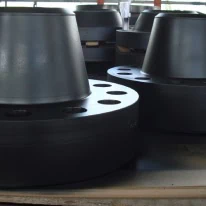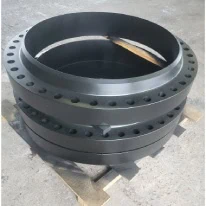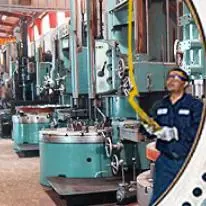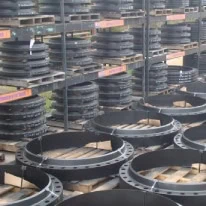Industrial Pipe Flanges & Fittings
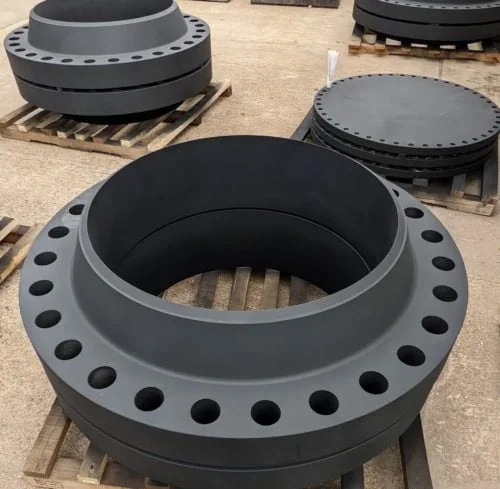 At their most basic level, flanges are used to add strength to a structure, assembly, or mechanical part. In the case of pipe fittings, flanges are essential to cover, close, connect, and support systems ranging from basic plumbing to industrial networks.
At their most basic level, flanges are used to add strength to a structure, assembly, or mechanical part. In the case of pipe fittings, flanges are essential to cover, close, connect, and support systems ranging from basic plumbing to industrial networks.
There are six common types of industrial pipe flanges and fittings:
- Slip-on, to slide over a pipe while maintaining a somewhat tight fit
- Weld Neck, connected to a pipe by welding the flange’s neck to balance stress transfer for high pressure applications
- Blind, a bolted seal that closes off flow to a vessel or through a piping system
- Lap Joint, a free rotating flange ideal for stub end fittings and applications that demand regular dismantling
- Threaded, a non-welded flange specifically designed for pipes with external threads
- Socket-weld, attached by inserting a pipe and applying a top weld for a smooth bore and inner flow
What makes industrial pipe flanges and fittings unique?
Piping is an essential tool for countless industries worldwide. In order to maintain high performance, reliable quality, and easily interchangeable operations, these components are designed and manufactured with standard dimensions and specifications in mind.
Pipe fitting standards vary based on country, industry, and application. Some common world standards include:
- ASA (USA)
- ANSI (USA)
- ASME (USA)
- PN (Europe)
- DIN (Europe)
- BS10 (Britain and Australia)
- JIS (Japan and Korea)
- KS (Japan and Korea)
To buy pipe fittings and manufacture components that perform properly, these standards are essential. In most cases, industrial pipe flange standards aren’t interchangeable, so careful attention is necessary to ensure the right fit for a project.
Industrial Pipe Flange Pressure and Temperature Standards
Pipe fitting suppliers craft and stock parts based not only on world standards, but on required temperature and pressure demands for specific applications. These pressure classes and temperature ratings can even be custom developed to maintain consistency within a particular client’s operational structure, such as in large process plants, power generating stations, and drilling systems.
Pressure classes are ranked numerically, and can range from 75 or 125 Lightweight all the way to 350 or higher.
Material Grades and Performance
Industrial pipe flanges can be crafted in a wide range of material grades for custom performance. From stainless steel pipe fittings to exotic alloy flanges, each grade comes with its own set of advantages. Some common choices include:
- Carbon Steel Flanges, the most popular industrial pipe fittings
- Stainless Steel Flanges
- Plate Flanges, ideal for the petrochemical industry and waterworks applications
- Bar Flanges
- Forged Spec Flanges
- Titanium Flanges, for high strength and low weight
- Aluminum Flanges, for lightweight applications
- Exotic Alloy (Inconel, Hastalloy, etc.) Flanges, for high temperature, high corrosion, and specialty applications
Industries and Applications
Due to their broad range of standards and the opportunity for custom engineering, industrial pipe fittings and flanges can be found connecting systems in all manner of industries around the world. Some key applications include:
- Valves, pumps, and vessels in food processing and manufacturing
- Heat exchangers and heating systems of all sizes
- Pipe connections in industrial waterworks
- Assemblies in the oil, gas, and petrochemical industries
- Nuclear power systems
- Plumbing and mechanical systems
- Mining support
- Fire protection systems
For more information on Industrial Flanges and Pipe Fittings, or to discuss flange solutions for your next project, contact the Coastal Flange team today.




